IT'S not the disease itself, as bad as that is.
Subscribe now for unlimited access.
$0/
(min cost $0)
or signup to continue reading
It's not the potential devastation of Australia's $32 billion livestock industry, or the risk of mass animal culling, or the threat of huge bonfires of burning cattle, sheep and pig carcasses dotting the landscape.
It's not even the fear of supermarket shelves devoid of meat and dairy products.
No, the scariest part about the recent outbreak of highly contagious foot and mouth disease (FMD) spreading across our northern neighbour Indonesia is complacency.
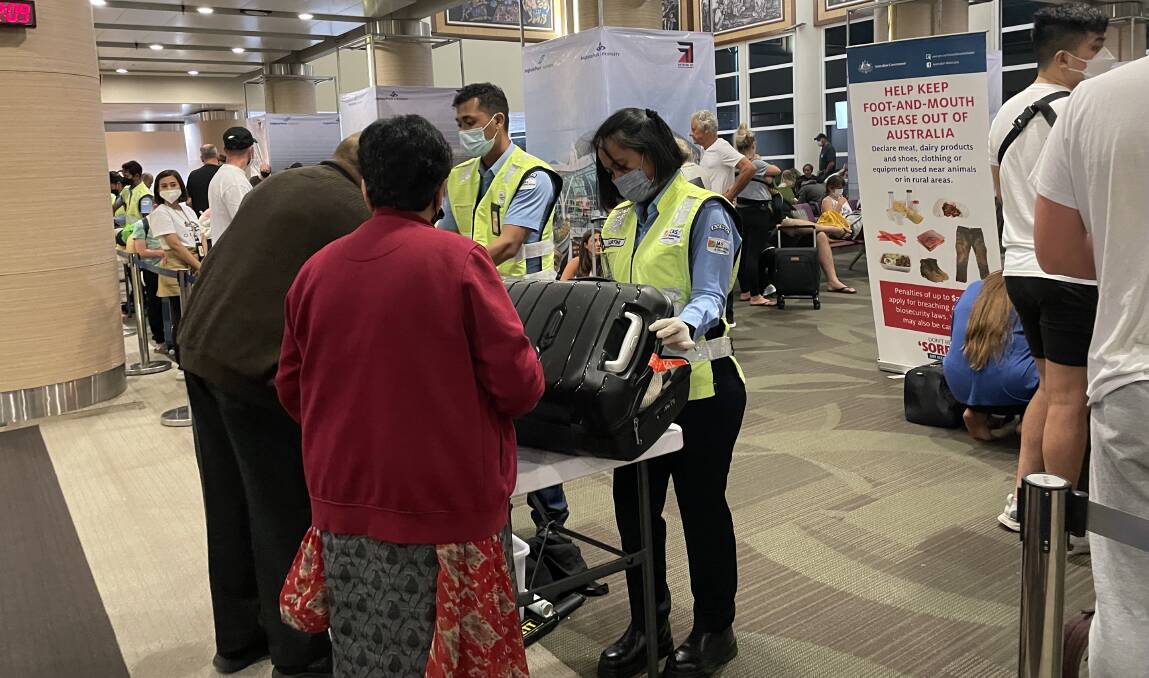
It's the complacency of some travellers to the enormously popular holiday destination of Bali, which more than 5000 Australians visit each day. In this case, ignorance is anything but bliss.
I just came back from Bali. The foot and mouth disease risk is real.
"There's not enough information out there," Josie Burch, a Perth mum of two, said as her family waited to head out on a quad-bike tour through a rural area north of Ubud.
"We knew about it before we came and we bought cheap K-mart thongs so we could chuck them out, but there was absolutely no mention of anything on the way over here. I don't think they're making a big enough deal about it."
Not every Australian traveller is as well informed as the Burch's, who are on their tenth trip to Bali.
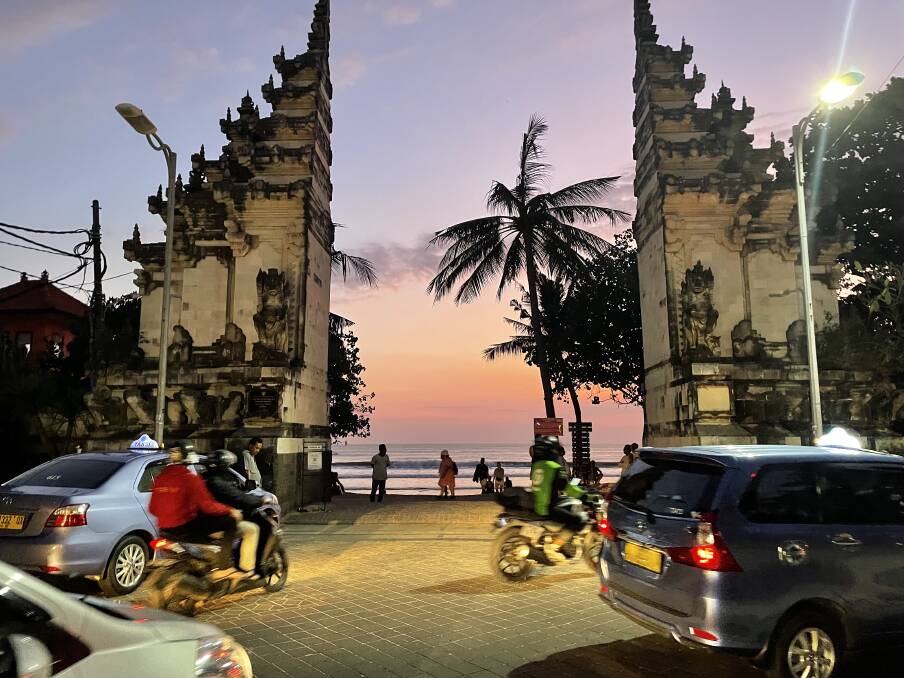
An Adelaide man in his 20s on popular Kuta beach recalled hearing "something about cattle, but I have no idea what it's about".
Two men waiting at Denpasar's Ngurah Rai International Airport said they had no intention of declaring they'd been mountain biking through farmland because they didn't "want to get stuck in long lines" at quarantine. They'd heard it was taking up to three hours.
A Perth woman staying in the upmarket beach resort area of Seminyak called FMD "a hoax", or the "next corona myth".
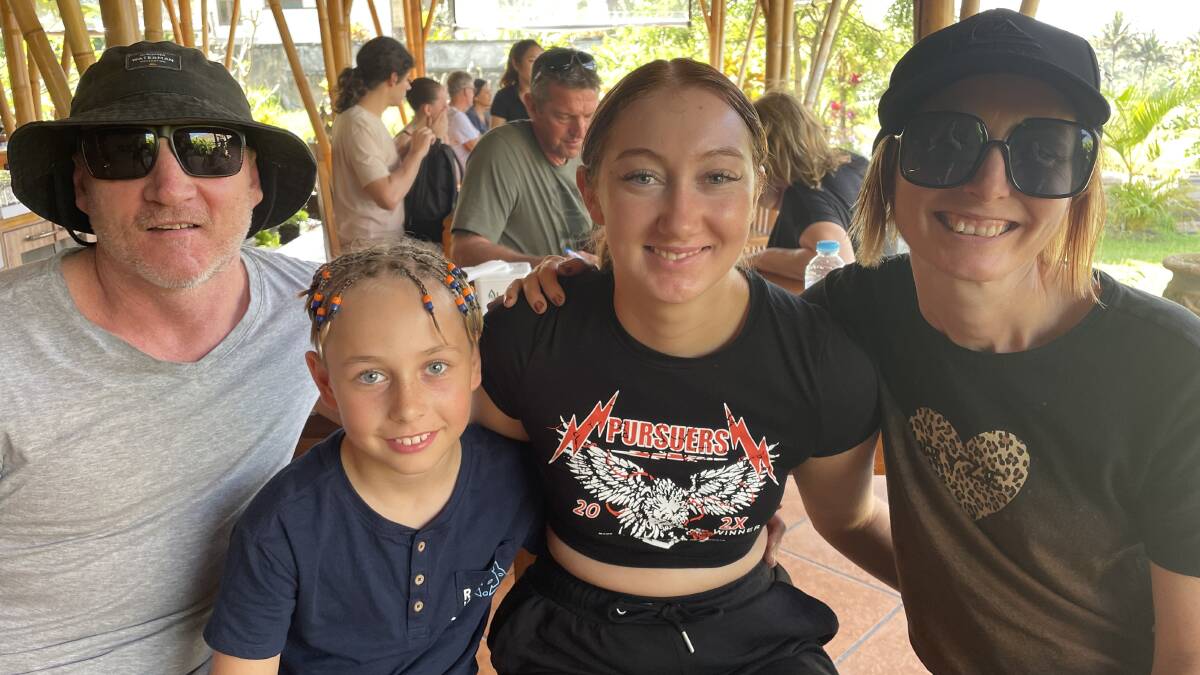
Jessie Shields, 20, of Adelaide, said he didn't "own any cows, so why should I care?".
Others knew nothing about it.
Since the first case of FMD was reported in Indonesia in May, it has spread like wildfire through 22 provinces and was first reported on Bali in early July where only a fraction of the island's almost one million head of cattle and other livestock has been vaccinated.
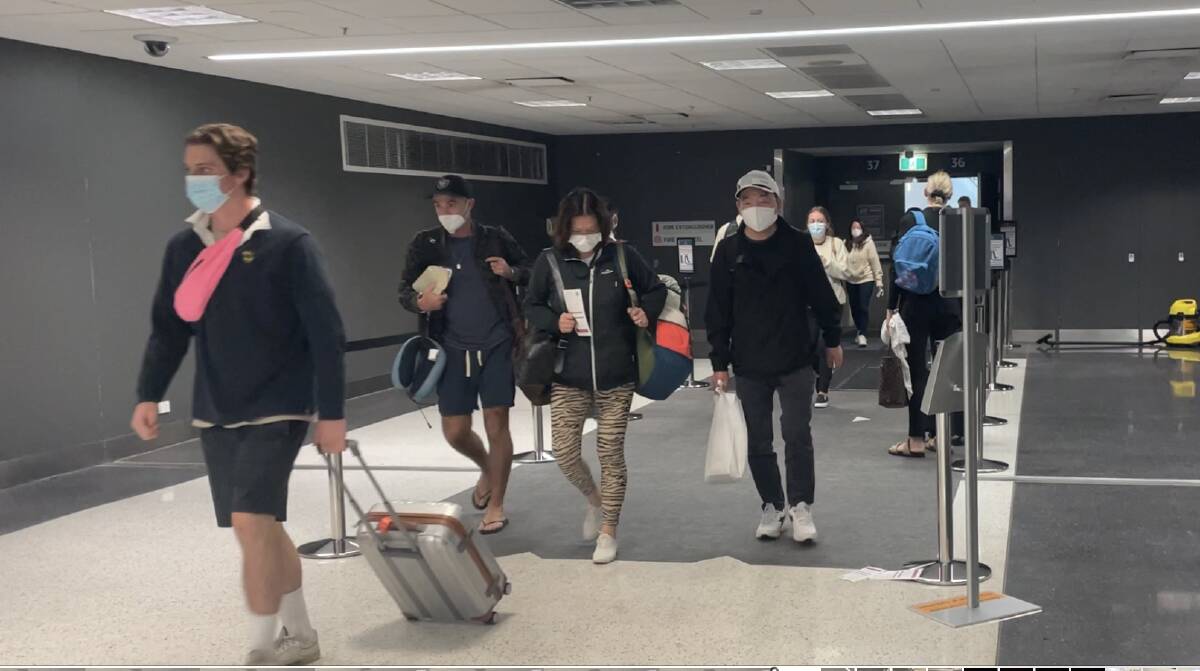
There are fears travellers could bring the virus home on their shoes or via animal products, dealing a potential $80 billion blow to the Australian economy.
FMD, which causes lameness in animals, is not dangerous to humans, but can survive on shoes, clothes and in noses for up to 24 hours. The virus can remain infectious for up to a month in the right conditions.
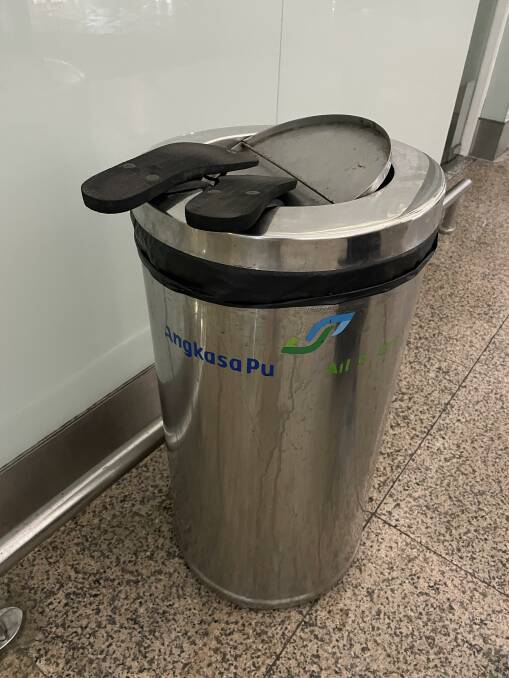
For a lot of travellers, foot and mouth landed on their radar last month following calls for Australia to close its border to Indonesia.
READ MORE:
Brothers Andrew and Anthony Jabbour, of Sydney, said once they knew their holiday wouldn't be affected, they tuned out. The men were travelling with friends and visited waterfalls and Bali's famous rice paddies in the north.
"I know the name foot and mouth, but I don't know what it is, what it's from or if it affects humans," Andrew said. "After they didn't close the border I forgot about it."

Hayden El-Bayen, 19, of Sydney, said he hadn't cleaned his shoes and had no intention of throwing them out.
"If they paid us I'd ditch my shoes, they're too expensive," he said. "I'm not even sure what this whole thing is about."
In Bali, as with the rest of Indonesia, including tourist hotspots Lombok and the Gili Islands, the government is aiming to stem the tide of FMD with vaccination. It's trying to avoid a mass culling like the UK government undertook in 2001, which resulted in the destruction of more than six million cattle, pigs and sheep.
Butcher Bayu Prasetia and two other men are parked on the side of a busy road in the Balinese uplands.
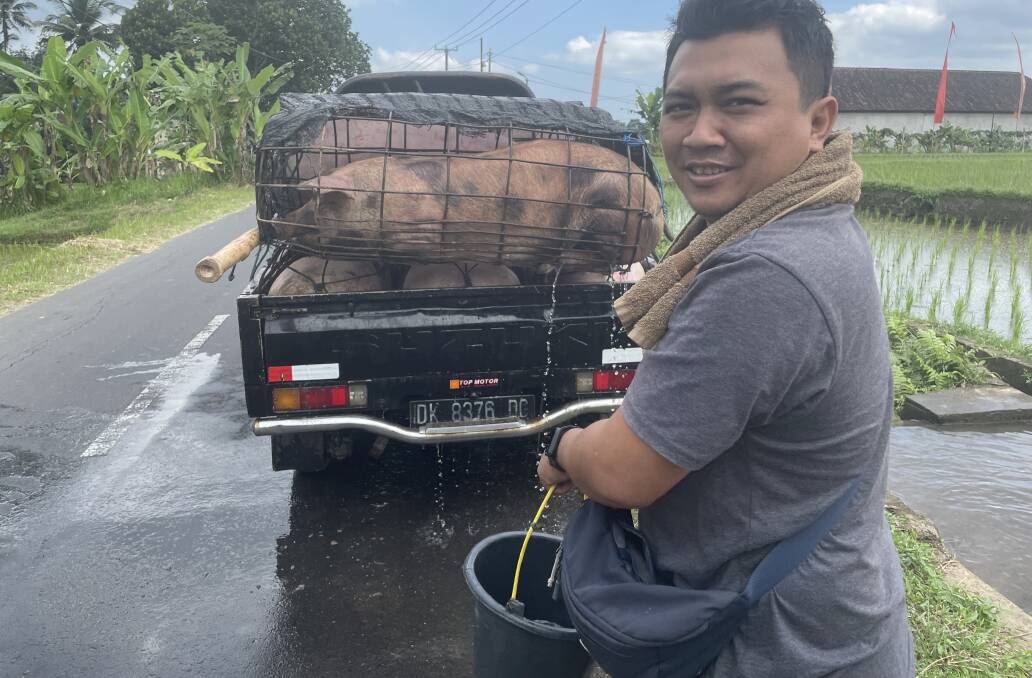
They spend 15 minutes collecting water from a nearby culvert to pour over 10 pigs jammed in the back of a small truck. It's hot, the pigs weigh about 100 kilograms each and are crammed in cages. They stink.
The men are headed to market in Denpasar where they expect to get "big money" for them. They don't want them dying of heat stress on the way.
Bayu tells me there is no foot and mouth disease in Bali, only on the neighbouring island Java. The men are not aware of the vaccine or any reason for concern.
"No issue here in Bali," he said. "Only on the big farms in Java."
Few Balinese I spoke to had heard of the outbreak and no-one was concerned. Those who knew about it said the feeling was that the government was dealing with it, precautions were being taken, and "all is well".

To date, the Australian government has firmly resisted calls to close the border to Indonesia, instead pouring resources into enhancing biosecurity measures to prevent the deadly virus getting in.
Last month, it committed $14 million to increase surveillance, boost biosecurity staff and educate travellers.
A further $5 million will go to reducing the spread of the disease in Indonesia, including the distribution of vaccines.
For me, the first official warning about foot and mouth came on the way home at Denpasar airport, where Qantas, Jetstar and Virgin each had a pop-up sign, which could easily be missed by busy travellers, at check-in counters.
There were also extra checks and another sign at the airport boarding gates, with Indonesian security staff hand searching carry-on luggage and confiscating liquids.
An officer said the extra checks were "at the request of the Australians".

When we landed in Sydney a foot and mouth disease announcement was played over the plane's loudspeaker, warning of the risk and detailing fines for not declaring animal products or information about visiting rural areas.
Travellers walked over acidic disinfectant mats as they entered the airport and at self-service passport scanning kiosks were asked if they'd been to Indonesia.
Having declared an animal product and that I'd been on farmland, I queued waiting for biosecurity officers to check my luggage.
I watched as others from the plane, including the mountain bikers, headed straight to the exit gate.
Despite having ditched the thongs I wore in Bali, my sneakers and the thongs I was wearing were taken to be sprayed with sanitizer.
"Better to be safe than sorry," the officer said.
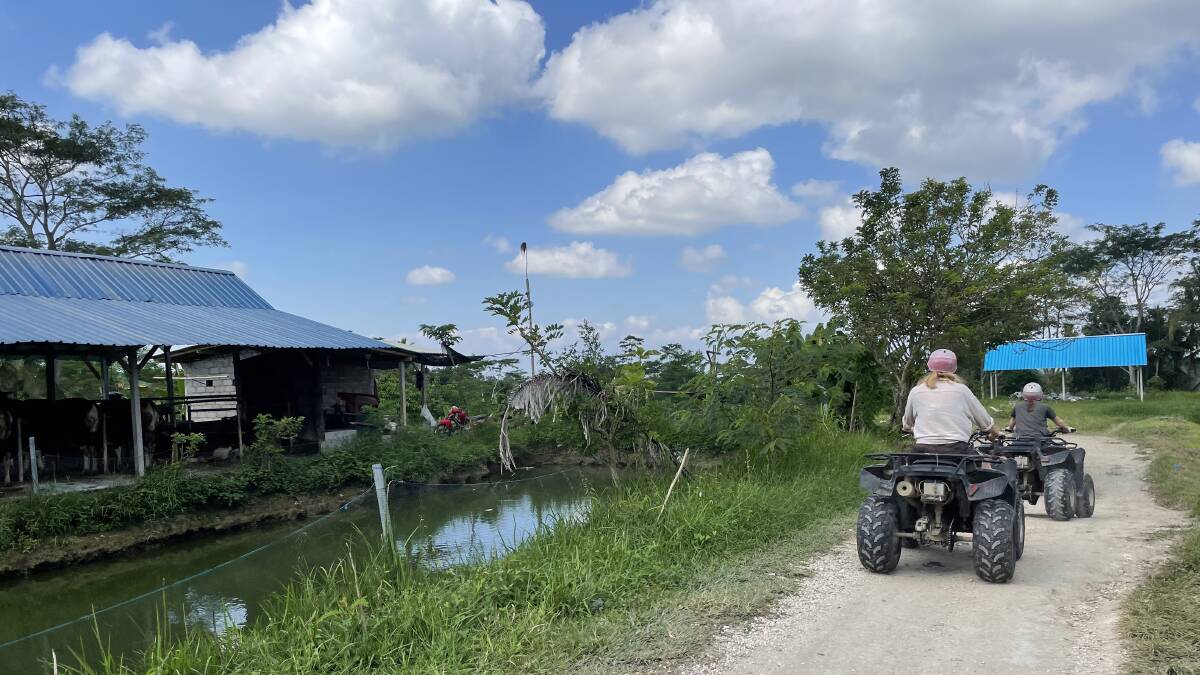
Publicly, messages from the government and farming groups continue to be reassuring. Australia is well prepared, they say.
We have the "strongest ever" border protection screening measures in place, according to Prime Minister Anthony Albanese.
Yet in all of this, there is no doubt a disconnect between the devastating realities of what a foot and mouth outbreak would mean for Australia, and what travellers on the ground care about, or know about.

